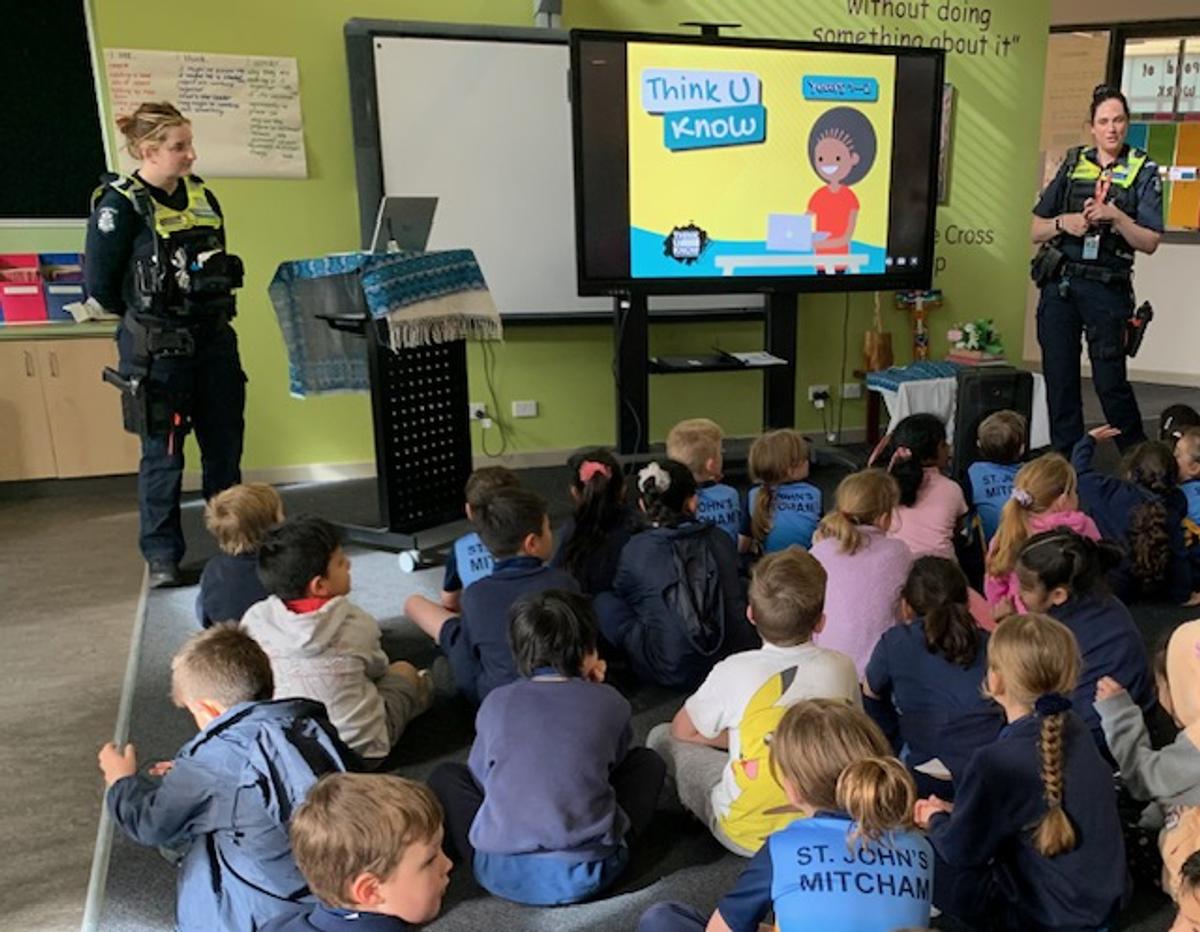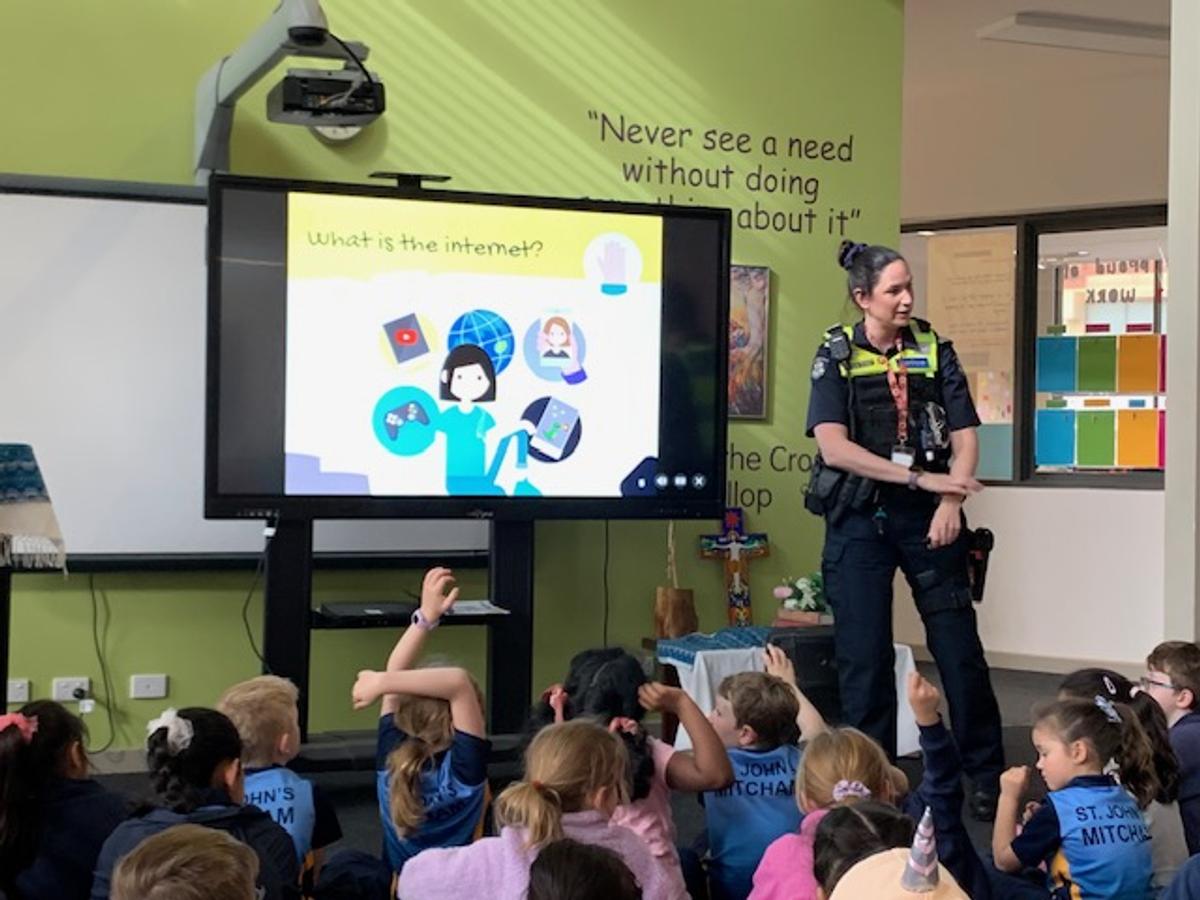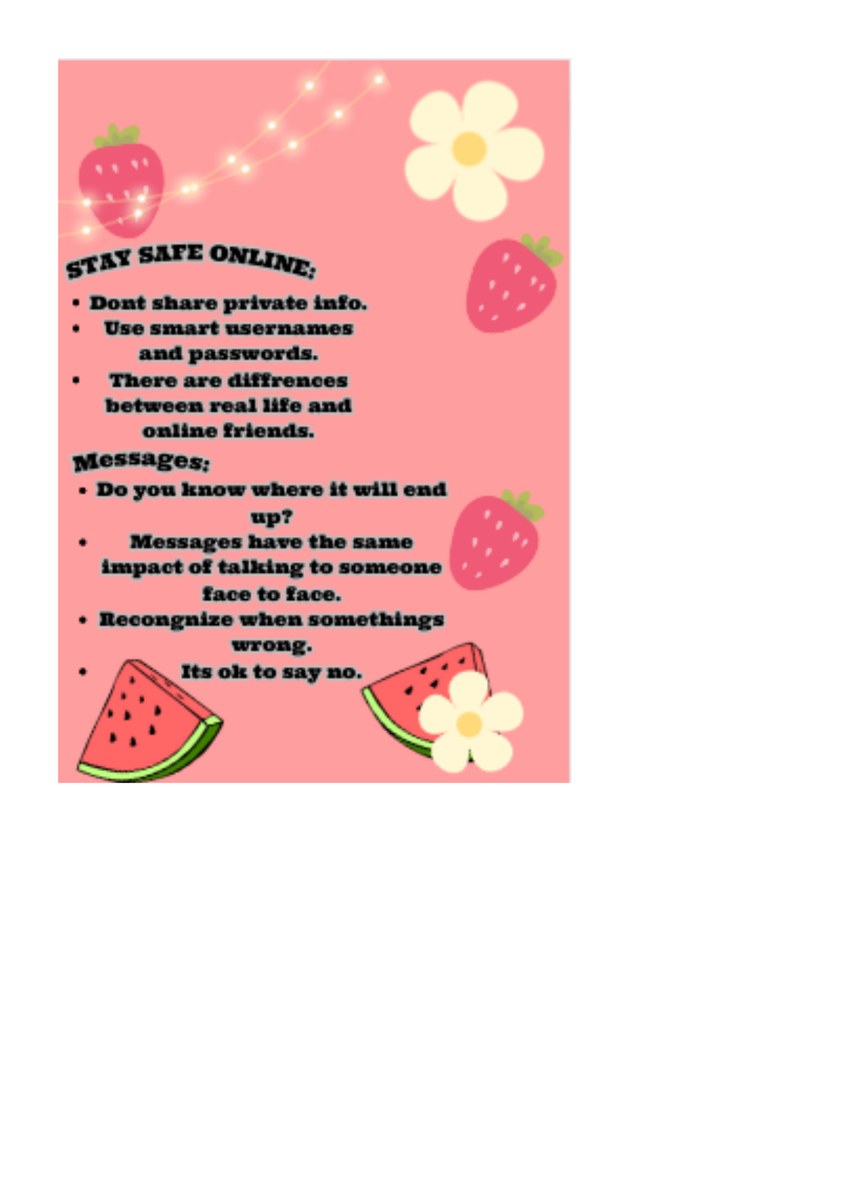Digital Technology

Cyber Safety Reflection by Maxwell
On Wednesday, 19th of July, the local police came to teach us about cyber safety. They taught us about how to stay safe online and gave us examples with videos. I especially liked the videos because they showed us things happening in an everyday environment. I learnt what to do if we ever encountered someone suspicious. Afterwards, they answered questions about being someone in the police.
Cyber Safety Poster by Eleanora
Online Safety
Learn about internet safety and advice you can give to your child to ensure they maintain safety when on the internet.
The internet and social media are part of the lives of many people and provide them with the opportunity to meet and communicate with people from all over the world. However, online technology and new modes of communication have also been used by predators and sex offenders to exploit and harm children.
While the internet generally offers great opportunities for children to learn and play, there are some areas of cyberspace that are not appropriate. Parents need to ensure children are actively supervised when using the internet, particularly time spent chatting online.
Steps for improving your child's safety
You can improve your child's safety by:
- sitting down with your children and discuss the issues
- making sure children are aware of some of the issues involved with spending time on the internet
- showing children what sites they can go to and what information they can send out
- being aware of the programs and files children use
- installing filtering software on computers used by young people
- being aware of the programs and files that are on your family's computers
- placing the computer in a public area of the home, such as a living room
- ensuring you are able to access your child's email and randomly check the contents
- checking your phone bill for unusual outgoing calls or consider using a 'caller ID' device to identify incoming calls
- discussing online safety with your child's school, public library or anywhere that you believe your child accesses the internet
Risk signs
If your child has been targeted by an online predator you may see the following signs. These include:
- finding pornography on your child's computer
- your child receiving phone calls from people you do not know or your child calling numbers you do not recognise
- your child spending a large amount of time on the internet
- your child receiving gifts or mail from people you do not know
- your child changing the screen or turning the computer off when you enter the room
- your child becoming withdrawn or displaying behavioural problems
Advice for your children
It is advisable to tell your children:
- not to send a picture of themselves to someone they do not know
- to never place a full profile and picture of themselves anywhere on the internet
- if they are using a Facebook page or similar, to block everyone's access to the page and only allow friends to have access to their profile
- to never give out personal information including their name, home address, phone number or school
- to never arrange a face-to-face meeting with someone they have chatted with on the internet



